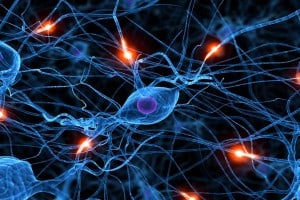Five Tips To Improve Memory And Boost Brain Power
Memory loss has become a problem from stress, unhealthy diets, smoking, drugs, alcohol; and memory loss is a common result of this type of lifestyle. Without having a long-term memory, we could not remember the basics of life and who we are. The prospect is frightening! Memory loss used to be considered only linked to aging but that has changed.
Medical research studies conclude that different techniques like hypnosis, cognitive therapy, meditation, certain natural medications and even exercise can help improve mental capacity. To help combat this very serious and increasingly important problem, here are five techniques you can use to keep a strong, healthy mind!
1. Meditate
Meditation has been proven one of the best and simple practices you can do to fight memory loss. An experiment done at the University of California at Santa Barbara did an experiment on 48 undergrad students to see if meditation enhances the function of your brain. Divided into two groups, one was given a class on nutrition, and the other a class about mindfulness meditation. The students who were practicing easy meditation techniques had a significantly higher score on memory tests.
Meditation can be practiced by anybody!
Learn How To Meditate For Better Brain & Mental Health
2. Physical exercise and healthy foods
Did you know that research has proven that a healthy regiment of exercise can also improve your brain’s health? Exercise increases yogen to the brain thus improving your brains function to store information. It can also help reduce risk of certain degenerative brain disease like Alzheimer’s disease, Parkinson’s disease, and Huntington’s disease. People who suffer from Alzheimer’s and exercise show significant memory improvement.
Do aerobic exercises and lots of cardio with simple weight training, or yoga as an easy way to improve memory. You can even improve it by playing certain games on your computer also surprisingly, or maybe not so surprisingly!
It’s important to understand that what you eat affects how your brain functions. It’s always best to eat organic and whole foods, rich in proteins, essential fatty acids, and antioxidants. Fruits and veggies rich in antioxidants include blueberries, acai, cranberries, and red beans. Nuts and seeds are good sources to get your protein and essential fatty acids.
Antioxidants found high in organic food prevent free radicals which are increased from GMO-seed activity from destroying your brain and harming your DNA.
3. Grouping and relating words
When you want to remember new information, if you don’t do this already, try to relate the new information you have to the old knowledge that you know. This strengthens the neural connections which help you remember things by association with other events similar and wired together with them. Say you meet a new person, when they tell you their names try to connect them to people you already know and see if it increases your chance of remembering their name!
Another way to help is to split things into groups. This especially works well for remembering words and numbers. For example a phone number is split into smaller groups: Instead of remember 555-426-2594, try to remember three groups of 555, 426, 2594.
4. Sleep
Sleep is extremely important for both mental and physical health. If you don’t get enough sleep your brain will be functioning at a reduced capacity. It can also impair some basic skills like critical thinking and problem solving.
A research at the University of Pennsylvania proved that losing three or four horus of sleep for just one night can have a negative effect on memory. It’s been said before that 8 hours is the recommended time the brain needs to shift temporary memories to an area of the brain that is responsible for long-term memory.
How To Meditate For Better Brain & Mental Health
5. Reduce stress
Stress plays an important position in memory loss because it can interfere with your ability to encode memory. Depending on the type of anxiety, it may cause acute or chronic changes in certain areas of your brain. This can affect short-term memory, long-term memory, explicit memory and implicit memory.
A simple way to reduce stress is by clearing your mind using relaxation techniques, such as deep breathing exercises and meditation. These techniques work very well for reducing stress, because they increase blood flow to the brain, relax your muscles and have you in a clear peaceful state of mind! Another good method to relieve stress is to simply do things that you enjoy doing. Once you learn to overcome your stress, which actually is possible! You will notice improvement in memory and brain power!










A strong memory depends on the health and vitality of your brain. And there are lots of things you can do to improve your memory and mental performance.
Omega-3 fatty acids are particularly beneficial for brain health. To boosting brainpower, eating fish may also lower your risk of developing Alzheimer’s disease. If you’re not a fan of fish, consider turning to fish oil supplements. Other non-fish sources of omega-3s include walnuts, ground flaxseed, flaxseed oil, pumpkin seeds, and soybeans